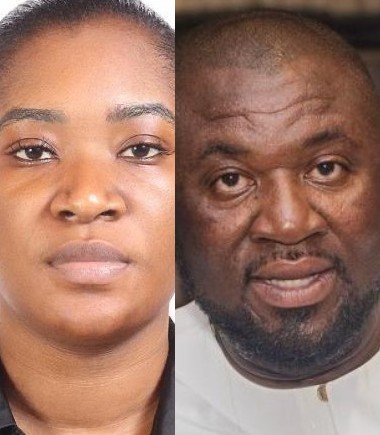
The new Ministry of National Security
In the last few years, security in our neighbourhoods and communities and along principal routes into highways, among others, have been a source of concern, with the leading opposition National Democratic Congress sometimes turning a genuine national issue into a propaganda campaign.
Victims of insecurity cut across social classes, and range from the ordinary citizen and vulnerable spouse and children, the politicians themselves, including MPs, MP aspirants and activists, to police personnel.
Crime types, as we may know, have been traffic, armed robbery, domestic violence, cyber, murders and the rest. In some cases, suspects have been nabbed; unfortunately, in others, the manhunt is still ongoing.
Partnerships
The police are currently relating quite well with the media and the general public in finding a solution to the canker afflicting us as a nation.
Swoops have yielded some results, with dozens of suspects, previously at large, having been tracked in the process, and police shootouts with armed robbery suspects having eliminated some of the daredevil armed suspects.
Government has done its best under the circumstances in training and retooling the police and other security personnel in managing the situation.
It appears, however, that while the security agencies are making some appreciable gains, criminals and crime do not seem to be subsiding.
Hollow propaganda
Even though every Ghanaian should be worried because we are all potential victims, which is why police visibility has been enhanced with appropriate technology in recent times, a pitifully insignificant segment of the population is striking discordant notes about supposed government inaction, instead of engaging stakeholders in developing effective strategies to fight the social and security threat.
It was a favourite topic driving their recent FixTheCountry noise; and it continues poisoning the airwaves and grassroots with the clear case of ‘sh-tbombing’, which has been a weapon of the party since the late 90s.
Not even Minority MPs, who are benefiting from the police protection policy for MPs, initiated by the Executive, seem to appreciate the fact that government cares about everybody. Indeed, the party’s top guns lead in the attack on the government.
Collective responsibility
Everywhere in the civilised world, security is a shared responsibility in which all citizens of the state aid security agencies to do their work effectively, even where technology is commonplace.
We believe it was that idea that guided the Provisional National Defence Council, particularly, to create neighbourhood watch committees to support the security agencies in strengthening the nation’s democratic journey.
Most decent Ghanaians would have thought that this was time for the NDC to remind Ghanaians and, indeed, the misled youth piping the lies, to initiate that conversation as a government-in-waiting.
Unfortunately, not even the moderate ones are offering concrete input in fighting crime, for reasons that they themselves would know.
Involving local security
We at the Daily Statesman believe that when the idea of regional and district security councils took root, as the coordinating agencies for fighting crime in communities, the idea was to tackle crime at the grassroots.
Unfortunately, we bred that agency into a political machine that would manage political clashes, chieftaincy disputes and land guard issues, rather than giving it linkages that involve religious leaders, traditional rulers and youth associations.
It is therefore the opinion of the Daily Statesman that we move the conversation to redesign the architecture of the security councils to connect with grassroots stakeholders as a matter of policy in improving efficiency to deal with criminality.
It may take some resources and training, but we believe it is worth it, as part of the programme to protect and improve lives and livelihoods across the country.







